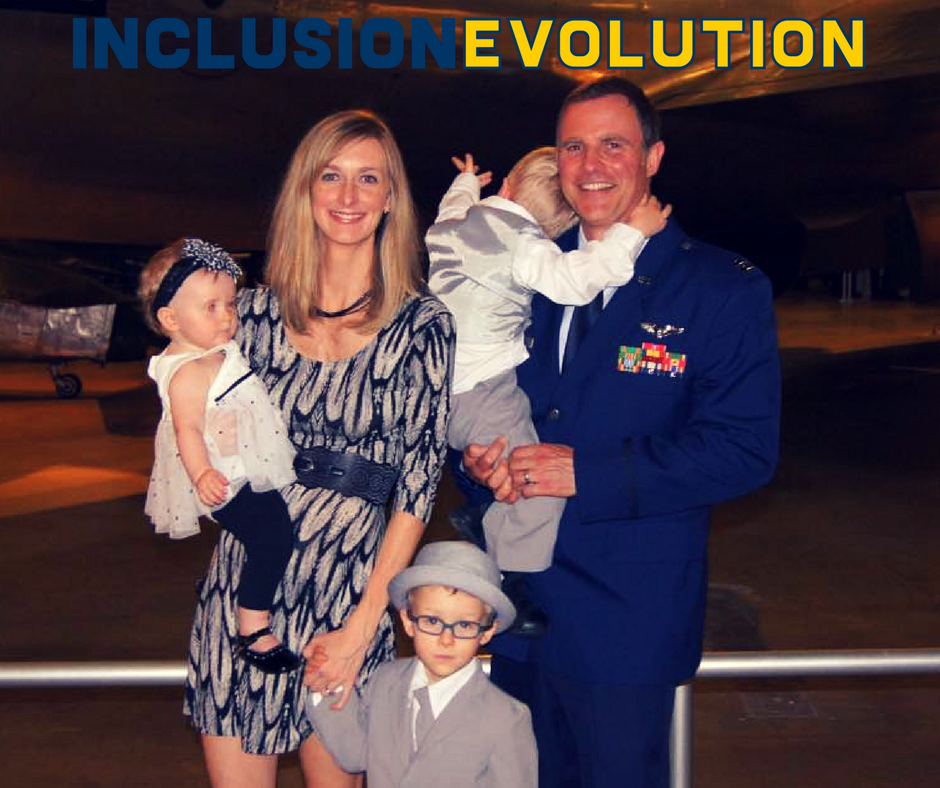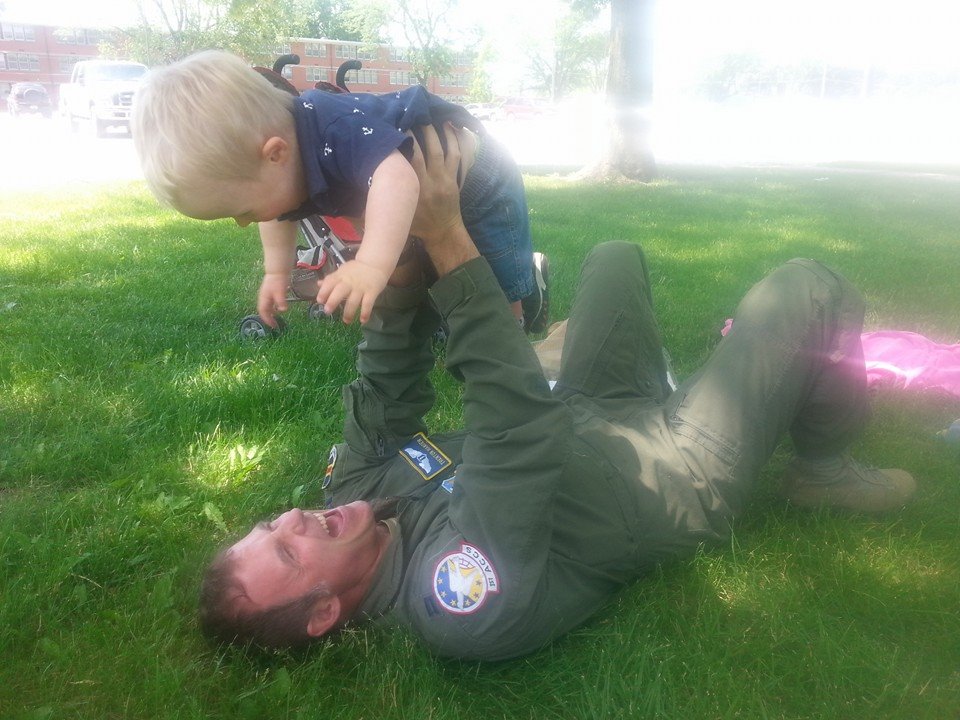How Military Service Creates a Secure Future for Our Son With Down Syndrome
Our family has a love-hate relationship with the United States Military. It’s taken us away from family and friends and each other. It’s lead to the death of good friends and painful memories of war and deployments. It’s also taught us what’s important in life: honor, duty and living every moment like it’s your last.
As one would expect, our relationship with the military leans more on the “love” side as my husband gets closer and closer to retirement. If I’m honest, the military has afforded our entire family a brighter future. For my husband and I, who grew up working poor, it’s meant reaching the American dream debt free. More importantly, for our son with Down syndrome, it means an exceptional life and secure future, even after we pass away.

Signing up for military service means making sacrifices 99 percent of Americans might not even consider, but the rewards are also worth mentioning. For the sake of this blog, I’ll limit those sacrifices and rewards to those pertaining to our son, Troy, who has Down syndrome. The goal of this post is not to recruit you for military service (like I could, even if I tried), but to give you a glimpse of life in the military with a child with a disability.
Taking Care of the Future Today
I’ll start at the end first, because I’m so excited and want to share what 20 years service with the United States military will get Troy. One of the first things someone (I don’t even remember who) told us when Troy was born, is that he would have free Tricare healthcare for life. Many individuals with Down syndrome are eligible for Medicaid when they become adults, but having a secondary insurance means Troy’s healthcare will be secure. Read more here.
The other huge perk is my husband’s retirement pension. On the day he retires, we can request that Troy receive the pension at my husband’s death, rather than myself. This seems like a no-brainer to me. Troy is likely to outlive both, Trenton and I. Likely, I’ll always be able to work and support myself, but Troy may need extra financial help throughout his adult life. Just beware and be prepared! You will need to open a “First Person Medicaid Payback Trust,” to ensure your child’s SSI and Medicaid benefits are not put at risk. As the title of the trust states, the funds in the trust upon your child’s death will be paid back to Medicaid. Learn more here.
Free Socialized Health Care
We always joke the military is the only place in America where you can experience socialism, even though we’re fighting for capitalism. I’ve had friends complain about their healthcare through the military, but really? It’s free. Everything is free. My husband doesn’t have a deduction out of his paycheck for healthcare. When you have a child with Down syndrome and multiple health problems, that is huge. We don’t pay a dime for medicine, specialists, surgeries, private therapies or orthotics.
I have too many civilian friends to count who don’t have their child with Down syndrome in private therapy or orthotics because it’s so expensive and their insurance doesn’t cover it. I can’t imagine our insurance not covering our child who has Childhood apraxia of speech and poor gait/low tone. I never have to beg for a referral or service. In fact, I usually tell my son’s military pediatrician which private specialists and therapists I want him to see and they sign the referral no questions asked. Troy even has his own case manager who I absolutely love. If we ever have a problem with a referral or a question about anything, I just call her and she takes care of it.

Troy with his Daddy
The Exceptional Family Member Program
Every branch of government has this fabulous program called “The Exceptional Family Member Program” (EFMP). The program was created in the 1980s to help military families identify the medical and educational resources they need at their current duty station. The “exceptional family member” can be anyone in the family who needs extra assistance. I had a friend who battled breast cancer in her 20s and her military husband was able to get home healthcare resources through EFMP. I also had a friend who’s child had a speech delay, and was able to get therapy services through EFMP. It’s worth noting that everything I mention here is absolutely free.
When you’re moving around a lot (we’ve moved four times in 10 years of marriage), you have added stress with a child with a disability. I’m constantly worried that our next duty station may not have a good children’s hospital or private therapy services or an inclusive school for Troy. Although the military mission is always paramount in any move, EFMP takes a family’s documented needs into consideration. We’ve made a point of staying away from states that are known to do a poor job educating and employing individuals with intellectual disabilities. Read about EFMP here.
Respite Support
I’m often asked how I survive with three kids, a husband in medical residency and no family support. Our closest family members live 500 miles away, which is the closest we’ve lived to family since my husband enlisted at 18 years old. The answer I give them is “wine and my respite provider.” Everyone who qualifies for EFMP is guaranteed a highly-qualified respite provider and 12 hours a month of free babysitting. This is my saving grace! It doesn’t sound like much, but when it’s free, you take it.
Our providers must have some professional connection to children with disabilities. We’ve had nurses, clinical psychologists and teachers. The respite providers are constantly in training; learning the newest child care research and medical techniques. They’re also highly compensated at a price I would never be able to afford. This ensures high quality care I can depend on. I’m always free on a Saturday night!
I still worry often about our military future and Troy. I worry about getting out or staying in, and the impact on all three of our kids. But the military has forced me to live in the moment and accept that change is inevitable. For Troy, who hates change and transitions, military life may help him face his fears and become a more flexible adult. It has for me!
Follow our journey of advocacy and inclusion at www.inclusionevolution.com.
We want to hear your story. Become a Mighty contributor here.

